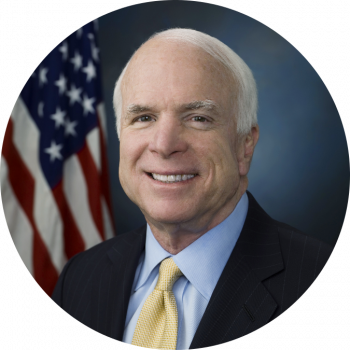People who have been following the same-sex marriage cases in the United States that this is the second “friend of the court” brief that the Justice Department has recently filed on the issue. Two prior briefs were for Windsor v. United States (one for the jurisdictional questions, the other for the merits), a case that will examine the constitutionality of the Defense of Marriage Act (DOMA) at the federal level. In that case, the Justice Department found DOMA indefensible. (Psst…if you haven’t seen The Good Wife’s episode on DOMA, you should.)
The brief wires me like coffee. It wires Ellen DeGeneres too, as she was wondering what the Supreme Court would do with all that underwear.
But it wires me because no doubt, this will be yet another sign to Obama’s critics that the Administration is hopelessly secular. Despite the fact that Obama constantly opens speeches with “Scripture tells us…” Mitt Romney told an adoring Republican crowd that he thought that Obama was inventing a new religion: secularism. (Romney was subsequently trolled by Lawrence O’Donnell for saying that.) The Obama Administration’s refusal to defend DOMA and Obama’s admission that he had evolved to support same-sex marriage was evidence. Never mind that Obama justified supporting same-sex marriage with the Bible, using the Golden Rule to trump the controversial passages on sexuality. In these accounts, the Obama Administration is secular and hell-bent on taking religion out of the public sphere, and every mention of his support for gay rights, from his campaign speeches on equal love to his Second Inaugural Address‘s invocation of Stonewall and historic use of the word “gay,” demonstrated that Obama had gone off the religion-hating secular deep end.
I agree with these people to the extent that I think that the Obama Administration is secular. But I don’t think secularism, especially Obama’s secularism, works that way. The Obama Administration’s friend of the court brief is a case in point.
Here are some observations:
- The United States has an interest in the Court’s resolution of that question, particularly in light of its participation in United States v. Windsor…The President and Attorney General have determined that classifications based on sexual orientation should be subject to heightened scrutiny for equal protection purposes (p. 1): For all the public theological rhetoric Obama has made, the argument of the Obama Administration is a secular one. The Administration’s stake in the case reveals what secular interests the executive branch has in the case’s outcome. Referencing their merits brief in Windsor, the Justice Department argues that its interest lies in the “heightened scrutiny” for “classifications based on sexual orientation,” i.e. that the court must scrutinize exactly why certain people are being lumped into a single category based on their sexuality and then discriminated against (see p. 12). To pass heightened scrutiny, “a law must be defended by reference to the ‘actual state purposes’ behind it, not ‘rationalization for actions in fact differently grounded” (p. 16-17). Heightened scrutiny applies, the brief explains, because gays and lesbians are a “protected class” due to the “history of discrimination” against them. This discrimination itself fails heightened scrutiny because it doesn’t advance a state interest. Instead, it’s a classification that “generally bears no relation to ability to perform or contribute to society” (p. 6). As anthropologist Talal Asad points out in Formations of the Secular, this is a classic secular argument: modern governments don’t really care what their citizens privately believe or even what sorts of things they do in the bedroom. They only care about those things when it affects the way that they contribute to society, to civic discussions of secular things like how the government should run, how the economy is going, and how we can all be more productive. This isn’t secular in the sense that religion is absent from the brief. It is instead a case study in secularism because the argument hinges on citizens being productive contributors to public life, never mind their private beliefs or desires.
- Proposition 8 fails heightened scrutiny. Neither the interests asserted by petitioners nor Proposition 8’s “actual purposes as approved by its official sponsors suffice under that standard (p. 7f). Not only does the Obama Administration proceed on secular terms, but it suggests that the proponents of Proposition 8–the supposed religious fanatics–are also making secular arguments. You can read their appeal here; it’s actually pretty secular, if I may say so myself. The Justice Department names three of these secular arguments: a) opposite-sex marriage advances “an interest in responsible procreation” because “only heterosexual couples can produce “unintended pregnancies” (p. 7), b) same-sex marriage should be pursued “with caution before departing from the traditional understanding of marriage” (p. 8), and c) marriage itself should be left up to the “democratic process” (p. 9). These are secular arguments because they don’t mention anything about the transcendent or metaphysical character of marriage; instead, they try to show that there are legitimate state interests at stake in keeping marriage between one man and one woman. The Justice Department then proceeds to poke secular holes in these secular arguments. First, they point out that the institution of marriage doesn’t exist just to make kids legitimate. Second, they observe that Proposition 8 doesn’t proceed with caution; as it bans same-sex marriage altogether. Third, they assert that equal protection is never subject to the democratic process because it’s a constitutional right. The Justice Department then moves to the Voters’ Guide, where they show that Proposition 8 fails even its own secular purposes of preserving tradition (the Administration argues that no opposite-sex marriages will be affected) and preventing kids from learning about it in school (the Administration points out that the text of Proposition 8 says nothing about education). In short, the heightened scrutiny that the Department of Justice applies demonstrates that at a secular level, Proposition 8 doesn’t make sense on its own terms and is better described as stemming from “impermissible prejudice” (p. 32).
These observations raise several points for conversation. The Obama Administration frames the case as a secular one. This framing, of course, is nothing new. In fact, a key plank in the original district court’s decision against the proponents, which basically affirmed the plaintiffs’ arguments, was that the Yes on 8 campaign had advanced a “private moral view” with little interest to a common, secular public good.
Call it secularism as we might, though, what the Obama Administration advances isn’t what Charles Taylor would call a “subtraction story,” i.e. a case the Administration is actively trying to vacuum religion out of the public discussion. The secular here is contained in the rubric of heightened scrutiny. The Administration is pushing the court to ask what legitimate state interest Proposition 8 advances and what relation that has to the public contribution of all of America’s citizens. They want to know why Proposition 8 has merit in a civil society where every citizen should be equal and why a government primarily interested in the contributions of its citizens, no matter who they are or who they privately love, should support it. The Obama Administration and its Justice Department are thus secular friends of a secular court discussing a secular case in which both sides have made secular arguments.
In terms of religion, then, we have some things to discuss about the Obama Administration:
- If we take the heightened scrutiny rubric as the key to understanding how secular both sides of Hollingsworth v. Perry are, what different things could we say about the secularity of the Obama Administration?
- If we take re-define secularism through heightened scrutiny, how might we re-think how we hear Obama reading Scripture and doing theology?
- If we re-read the Proposition 8 proponents’ case with heightened scrutiny on religion, what new insights might we come up with regarding their view on what religion is and what the relationship among religion, public participation, and views on sexuality is?
The Department of Justice calls for “heightened scrutiny” for Proposition 8. Willfully plucking that legal term out of its contextual jargon, I’ve tried to provide some religious scrutiny on the brief. Read like this long enough, of course, and this re-defined view of “the secular” will certainly wire you like coffee.











